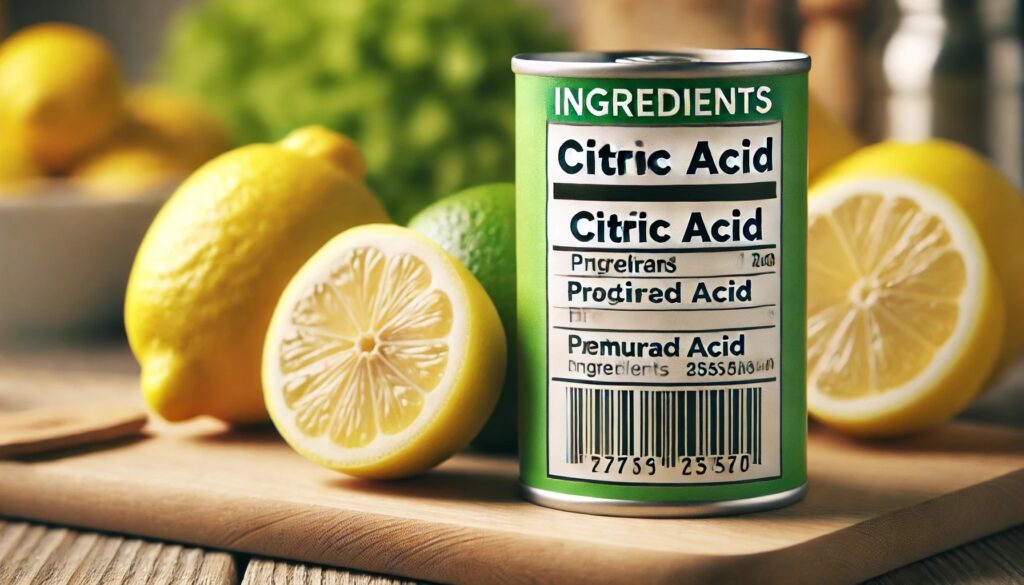
The Truth About Citric Acid in Food: Is It Really Natural?
You might think that citric acid is just the same as squeezing a fresh lemon into your water. After all, it’s a common ingredient found in processed foods, drinks, and supplements. But here’s the surprising truth: the citric acid you’re consuming isn’t the natural compound you expect—it’s a lab-made chemical often derived from mold.
The citric acid in most of today’s products is created through a fermentation process using Aspergillus niger, a type of black mold. While this may be an efficient production method for manufacturers, it introduces potential risks for people sensitive to mold. Even if you don’t know it, mold sensitivities can develop over time, especially for those who have unknowingly lived in moldy environments.
Why Citric Acid Isn’t as Safe as It Seems
Many people assume citric acid is harmless. After all, it’s in everything from canned vegetables to soft drinks. But because it’s made using mold, it can trigger symptoms in those who are mold-sensitive. Living in a moldy environment can make your body more susceptible to this lab-created version of citric acid, which may cause reactions such as:
1. Allergic Reactions: For people sensitive to mold, citric acid can lead to skin rashes, itching, and even respiratory issues.
2. Digestive Problems: Stomach cramps, bloating, or discomfort are common complaints.
3. Irritation: It can cause irritation in your mouth, gums, and throat, especially if consumed regularly.
4. Worsening of GERD: Citric acid’s acidic nature can aggravate acid reflux symptoms.
Natural Alternatives to Citric Acid

If you’re looking to avoid synthetic citric acid, here are a few natural alternatives:
• Lemon Juice or Lime Juice: These are your best bets for a natural source of citric acid.
• Apple Cider Vinegar: A great alternative with additional health benefits.
• Tamarind: Common in various cuisines, tamarind offers a sour, acidic flavor.
• Ascorbic Acid (Vitamin C): While not the same compound, it can deliver a similar tangy effect.
Should You Be Concerned?
If you’ve lived in a moldy environment, even unknowingly, and now experience unexplained allergic reactions or digestive issues, it could be time to check your diet for synthetic citric acid. This hidden ingredient in many processed foods may be behind your symptoms, and it’s something worth being mindful of.
Making the switch to natural alternatives can help protect your health and improve your overall well-being. Always check labels carefully and opt for products that use real, natural ingredients.
WRAPPING UP THE DANGERS OF CITRIC ACID
While the term “citric acid” sounds harmless, the lab-made version found in most products is far from natural. If you’ve been exposed to mold in the past, or if you’re experiencing unexplained health issues, this synthetic ingredient could be to blame. Opt for natural sources like lemon juice and vinegar to avoid the risks associated with mold-derived citric acid.
Discover more from
Subscribe to get the latest posts sent to your email.
